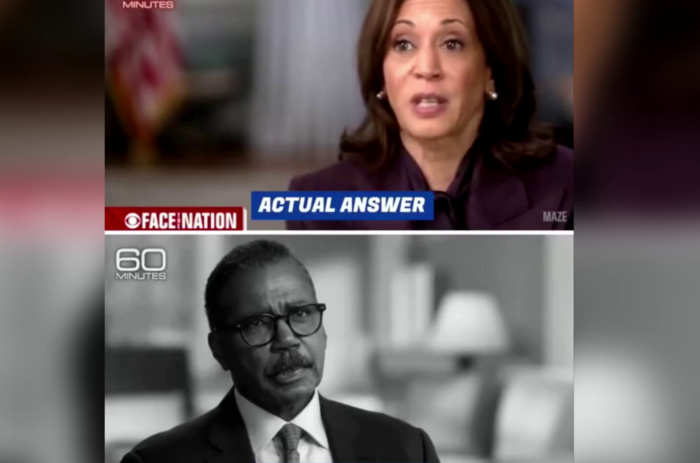redo Jump to...
print Print...
Directions
Read the excerpt below (from Julia A. Seymour and Dan Gainor's report posted at BusinessAndMedia.org). Read "Types of Media Bias" in the right column. Then answer the questions.
Global warming skeptics rarely get any say on the networks, and when their opinions are mentioned it is often with barbs like “cynics” or “deniers” thrown in to undermine them.
Consistently viewers are being sent only one message from ABC, CBS and NBC: global warming is an environmental catastrophe and it’s mankind’s fault. Skepticism is all but shut out of reports….
The Business & Media Institute analyzed 205 network news stories about “global warming” or “climate change” between July 1, 2007, and Dec. 31, 2007. BMI found … 20 percent of stories even mentioned there were any alternative opinions to the so-called “consensus” on the issue.
- Disagreement Squashed: Global warming proponents overwhelmingly outnumbered those with dissenting opinions. On average for every skeptic there were nearly 13 proponents featured. ABC did a slightly better job with a 7-to-1 ratio, while CBS’s ratio was abysmal at nearly 38-to-1.
- Can I See Some ID?: Scientists made up only 15 percent of the global warming proponents shown. The remaining 85 percent included politicians, celebrities, other journalists and even ordinary men and women. There were more unidentified interview subjects used to support climate change hype than actual scientists (101 unidentified to just 71 scientists)
- What’s It Going to Cost?: All “solutions” have a price, but the cost of fighting global warming was something you rarely heard on the network news. Only 22 stories (11 percent) mentioned any cost of “fixing” global warming. On the rare occasion cost came up, it came from the lips of a skeptic like Kentucky state Rep. Jim Gooch (D), who said one climate change bill in Congress “would cost $6 trillion.”
- CBS the Worst: Journalist/global warming advocate Scott Pelley helped CBS be, by far, the worst network. Pelley argued in 2006 that he shouldn’t have to include skeptics in such stories because “If I do an interview with [Holocaust survivor] Elie Wiesel, am I required as a journalist to find a Holocaust denier?” In 2007, he helped ensure only four skeptics were included by CBS – and not a single one was a scientist. Compare that to the 151 people used by the network to promote global warming hysteria. The wildly one-sided outcome was not surprising given remarks by some of its other journalists. Harry Smith declared that “There is, in fact, global climate change” on the Aug. 7, 2007, “Early Show.”
- ABC the “Best”: Despite its over-the-top climate hypocrisy of jet-setting journalists around the world to cover climate change, ABC included more skepticism (36 percent) in its broadcasts than either NBC or CBS. Still, the network has plenty of work to do. Bill Weir made the outrageous claim during the Nov. 18, 2007, “Good Morning America” that “all these scientists” urge immediate action to stop global warming. Weather personality Sam Champion even referred to the most recent U.N. climate report as “unequivocal” and “definitive.
To improve coverage, BusinessAndMedia.org recommends:
- Report the issue objectively: Reporters have a professional responsibility to remain objective and avoid inserting their own opinions into their reports. Many in the media have sorely missed that mark when it comes to reporting on global warming and climate change.
- Include skeptics: The Society of Professional Journalists Code of Ethics states journalists should “Support the open exchange of views, even views they find repugnant.” It is the media’s job to inform the public, not persuade them by leaving out alternative viewpoints. Particularly, networks should give skeptical scientists the opportunity to share their findings – just like they include scientists who say manmade global warming is negatively impacting the planet.
- Show Me the Money: If the U.S. government passes legislation to address global warming, it will carry a cost and American taxpayers have a right to know what it would be. The media need to do a much better job by asking about or including cost estimates of climate change “solutions.”
Read the full report at BusinessAndMedia.org.
To accurately identify different types of bias, you should be aware of the issues of the day, and the liberal and conservative perspectives on each issue.
Types of Media Bias:Questions
1. Re-read the BusinessAndMedia.org recommendations for how the media should report on the issue of global warming. With which recommendations do you agree? Explain your answer.
2. OPTIONAL: Compare the examples from ABC, CBS and NBC reporting on global warming to New Zealand television’s “Nzone Tonight” interview with Professor Bob Carter of James Cook University, Queensland, Australia at YouTube.com. What do you think of host Alan Lee’s treatment of and reaction to Professor Carter’s assertions about global warming as compared to the American media?
Scroll down to the bottom of the page for the answers.
Answers
OPINION QUESTIONS. Answers vary.



